Iran’s Fire Festival Claims 19 Deaths and 2,800 Injuries
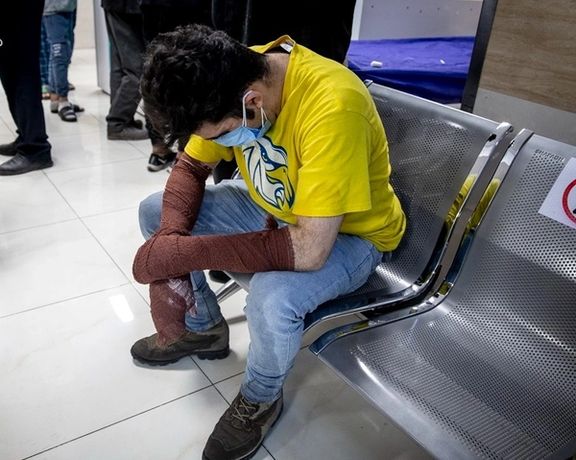
At least 19 people died and 2,800 injured in Iran Tuesday evening in Chaharshanbe Suri, the celebration of the annual fire festival ahead of Iranian New Year.

At least 19 people died and 2,800 injured in Iran Tuesday evening in Chaharshanbe Suri, the celebration of the annual fire festival ahead of Iranian New Year.
More than 30 of the injured are in critical condition, 171 had lost a limb, 880 suffered eye injuries, and 850 are suffering from different degrees of burns, the spokesman of the national emergency services, Mojtaba Khaledi, said Wednesday.
Home-made fireworks and improvised explosives, authorities have said, are the main cause of casualties, although most people only leap over bonfires and fireworks. State broadcasters carry safety warnings.
Hossein Rahimi, the Tehran chief police said Tuesday, even before most celebrations had begun, that more than 50 people had been arrested in the capital.
Police usually arrest people who celebrate the Chaharshanbe Suri with dance and drinks as the national tradition is frowned upon by Islamic hardliners who see it as a pagan relic.
Literally translated as festive or scarlet Wednesday, Chaharshanbe Suri, whose roots go back beyond ancient Zoroastrianism, is a prelude to Nowruz holidays and is marked on the eve of the last Wednesday of the final Iranian month.
Nowruz is celebrated across Asia with similar traditions at the time of the spring equinox, when the day becomes longer than the night. With ‘Chunfen,’ millions of Chinese head for outdoor picnics.
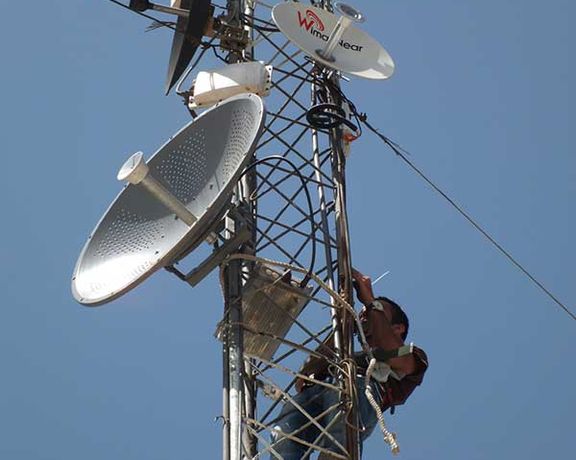
Reports from Iran say Internet and mobile phone networks have experienced a long disruption since Monday in several cities and towns around the capital Tehran.
The disruption has created numerous problems for citizens and businesses in cities across the greater Tehran province, such as Eslamshahr, Parand, Damavand and Robatkarim, during the last few working days before Nowruz, the Iranian New Year holidays begin on March 20.
Ghorban-Ali Qomi, Director General of Public Relations of Tehran Province, said on Tuesday that cables caught fire in one of the communication hubs due to an unknown reason, which is being investigated.
Earlier in March, authorities cited a similar reason as Internet services on mobile phones and landlines were disrupted in the Iranian capital Tehran and the nearby city of Karaj.
The government blocks thousands of websites and top social media apps in a bid to control the flow of information.
Iranians were outraged this month when a group of 18 hardliners in a parliament committee claimed that they had ratified a bill to further restrict internet and social media access.
Iranian authorities have often not revealed the real cause for such incidents. Some people reacted to the disruption by blaming the authorities, saying the outage was a trial run for the plan to further restrict internet and social media, which hardliners are pushing for.
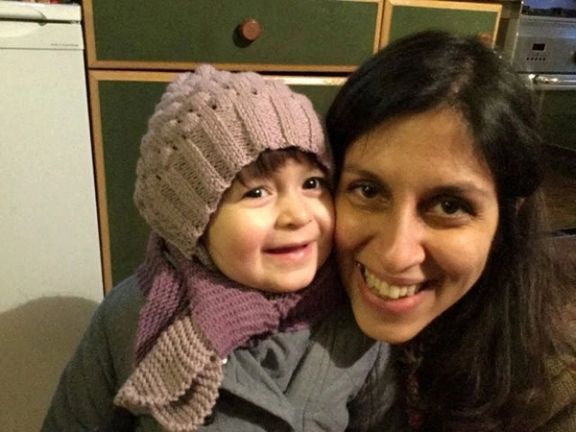
British Prime Minister Boris Johnson has announced that two British-Iranian dual nationals are free from Iranian detention and “they will now return to the UK.”
Johnson’s tweeted the news as Iranian government-controlled media reported that Nazanon Zaghari-Ratcliffe and Anoosheh Ashuri were handed over to British officials earlier on Wednesday.
Images tweeted showed Zaghari-Ratcliffe boarding a plane and smiling inside the aircraft.
Later news emerged that a plane carrying the freed individuals landed in Oman. It is not clear how long they will stay there before flying back to the UK.
Another detainee, Morad Tahbaz, has also been freed from prison but not yet cleared to leave Iran. UK Foreign Secretary Liz Truss tweeted that "I can confirm Nazanin Zaghari-Ratcliffe and Anoosheh Ashoori will return to the UK today, and Morad Tahbaz has been released from prison on furlough. They will be reunited with their families later today."
"Both of them are on their way to the airport in Tehran to leave Iran," Reuters quoted their lawyer Hojjatr Kermani as saying. Iran's judiciary officials were not available to comment.
Iran's Fars new agency affiliated with the Revolutionary Guard announced that Zaghari-Ratcliffe is in the airport being handed over to a British team in exchange for a 400-million-pound debt the UK owes Iran.
Earlier, UK Prime Minister Boris Johnson had confirmed that a British negotiating team is in Tehran.
Reports on Tuesday indicated that Zaghari-Ratcliff had received her British passport back from Iranian authorities.
Foreign Secretary Liz Truss also said on Wednesday that Britain is looking at ways to pay a historic 400-million-pound ($522 million) debt to Iran, adding that she would not say if it had been settled already.
Iranian state media in 2021 cited unidentified Iranian officials as saying that the British-Iranian aid worker Nazanin Zaghari-Ratcliffe would be freed once the debt had been paid.
"We have been clear this is a legitimate debt that we do owe Iran and we have been seeking ways to pay it," Truss said. She added that there was a British team in Iran but would not give any further details.
Iran's clerical rulers say Britain owes the money that Iran's Shah paid up front for 1,750 Chieftain tanks and other vehicles, almost none of which were eventually delivered after the Islamic Revolution of 1979 toppled the U.S.-backed leader.
The British and Iranian governments say there is no connection between the debt and the legal case.
Zaghari-Ratcliffe, a project manager with the Thomson Reuters Foundation, was arrested at a Tehran airport in April 2016 and later convicted by an Iranian court of plotting to overthrow the clerical establishment.
Zaghari-Ratcliffe, who served most of her first sentence in Tehran's Evin prison, was released in March 2020 during the coronavirus pandemic and kept under house arrest at her parents' home in Tehran. In March 2021, she was released from house arrest but she was summoned to court again on the new charge.
In April 2021, she was then sentenced to a new term in jail on charges of propaganda against Iran's ruling system, charges she denies. However, that sentence has not yet started and she is banned from leaving the country.
In the past 43 years, the Islamic Republic has taken hostage or detained many foreigners and dual national. Security agencies arrest occasional visitors or tourists on vague and trumped-up charges of espionage or anti-regime activities. Usually, the detained individuals are exchanged for money or release of certain Iranians imprisoned in the West for illegal activities.
International human rights organizations say that the practice amounts to hostage taking to gain leverage against other countries.
With reporting by Reuters
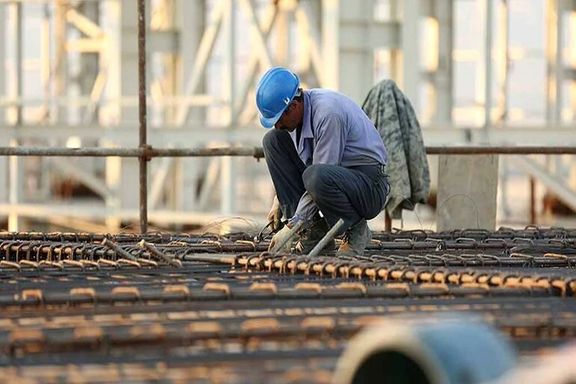
Employers in Iran say the recent unprecedented 57-percent minimum wage increase may backfire on workers by reducing demand for labor, while boosting inflation.
During four years of high double-digit inflation and the devaluation of Iran’s currency, wages have become a fraction of what workers need to survive. People’s basic needs have become expensive because imports are more expensive. A worker now earns around $100 a month, woefully inadequate even for food.
Last week, the government and labor representatives decided to increase minimum wage by 57 percent, but many warn that this will just lead to more inflation.
Hossein Salahvarzi, deputy chairman of Iran's Chamber of Commerce, in a tweet on March 12 called the increase "nominal" and said it would not help people's livelihoods. "Financial improvement in the lives of the members of the society requires stability in production and trade," he said and argued that the government should "reduce political risk", among other things such as better economic management, to provide economic stability.
Pundits say political stability and improved international trade require reducing tensions with the international community. When production goes up, demand for labor will increase too and workers' wages will rise. The increase in minimum wage under current circumstances would only cause higher prices, ruin a wide range of small businesses, and cause further unemployment as employers will not be able to keep up with the higher costs of production and transportation of goods.
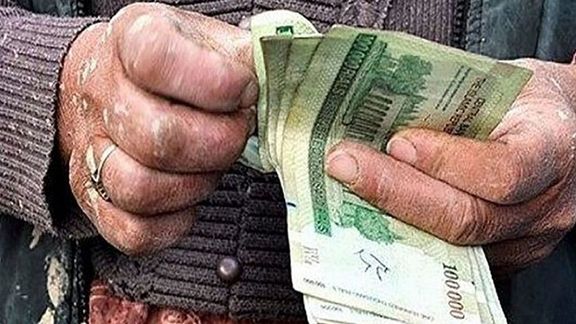
Expectations of more inflation are also based on other factors including large government's budget deficits and a decision to stop subsidies for imported food and other essential goods to save around $8 billion for the government.
Some experts say a higher minimum wage will not boost inflation. "The increase in minimum wage has no inflationary effect at all," Saeed Laylaz, economist, told Khabar Online Tuesday. The root cause of inflation growth in Iran is firstly the government budget deficit, and secondly, corruption in the banking system which reveals itself in disequilibrium.
The Supreme Labor Council which consists of representatives of workers, employers, and the government last week agreed to raise the minimum wage from 26,550,000 rials to 41,790,000 rials, which is nearly $170 in today’s exchange rates.
With the monetary allowances for housing, food and children, the final wage will increase to 62,000,000 rials – almost $240 a month, before $24 is withheld for payroll taxes.
The 57 percent increase was unprecedented in the past three decades. Labor groups say it is difficult to say whether the increase will have a lasting impact in workers' lives. They argue that the rate of inflation, already above 40 percent, may rise to new heights and soon reduce the purchasing power of their wages.
Labor groups also insist that the poverty line in Iran is now around $400 a month for a family of 3.3 people, so the proposed minimum wage is half of the needed money just to be able to survive. Some 60 percent of Iranians have fallen into what government officials describe as poverty and can no longer afford red meat and even fruit and vegetables the consumption of which has hugely dropped in the past few years.
Iranian workers were earning more than $400 a month before the United States imposed sanctions in 2018, which pushed Iran’s currency almost ninefold lower, creating inflation that wages have not kept up with.
Rising prices and economic hardship have led to repeated labor strikes and nationwide protests since 2017, even before the imposition of US sanctions. Iran’s centrally controlled economy is inefficient and not conducive to foreign investments, with high reliance on oil exports.
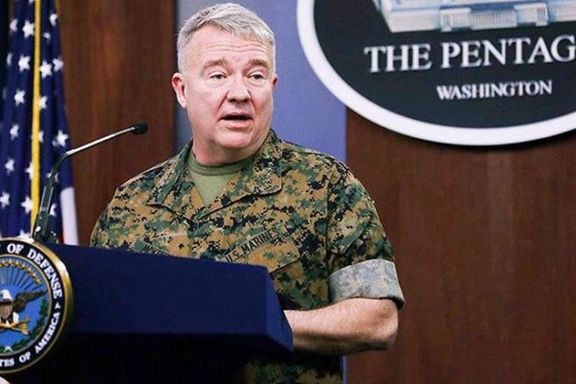
Outgoing CENTCOM commander Gen. Kenneth McKenzie has called on Israel to shares its air and missile defense systems with its regional allies to counter the Iranian threat.
Gen. McKenzie told the Senate Armed Services Committee on Tuesday that such a step would bolster security cooperation between Israel and its fellow Arab CENTCOM members, including Iraq, the United Arab Emirates, Kuwait, and Saudi Arabia.
He said the most pressing and significant issues all the states in the region confront regarding Iran are air and missile defense, and Israel’s entry into CENTCOM “has great opportunities, particularly in the area of integrated defense”.
Referring to threats by Iran's ballistic and cruise missiles as well as drone program, he said, "Everyone in the region is seized by the Iranian threat, and they want to be able to defend themselves against that threat — that threat is primarily in the air”.
Describing the Islamic Republic’s ballistic missile program as an "exigent threat", McKenzie added, "They have over 3,000 ballistic missiles of various types, some of which can reach Tel Aviv. Over the last five-to-seven years, they have invested heavily in the ballistic missile program. Their missiles have significantly greater range and significantly enhanced accuracy.”
"Iran continues to pose the greatest threat to US interests and the security of the region as a whole. Through its proxies and clients, Iran has fomented conflict, an arc tracing from Yemen through the Arabian Peninsula, across Iraq and Syria and Lebanon and to the very borders of Israel," he noted.
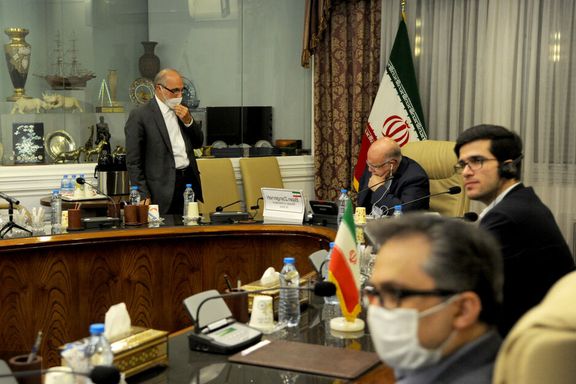
IRGC has banned many oil officials of the former government from leaving Iran for fear of revealing sanctions-busting methods, a hactivist group has revealed.
Edalat-e Ali group has provided a copy of a highly confidential letter to Iran International which includes a list of 37 mid-level officials of ex-President Hassan Rouhani’s administration, including 16 oil ministry officials and six working in the gas field, that the IRGC wants to be banned from leaving the country.
The letter dated September 6, 2021, with an attached list from the Revolutionary Guards (IRGC) Intelligence Organization to the Revolutionary Prosecutor of Tehran Ali Alghasi-Mehr also cites reasons for the bans. In the case of most oil officials the reason is preventing them from revealing "secret information" on how Iran manages to circumvent US sanctions to sell crude oil.
IRGC revenge
Nicosia-based oil and gas reporter Behzad Ahmadinia told Iran International that Iranian officials in sensitive positions are commonly banned from leaving the country after the end of their tenure or must get permission to do so. However, he said, the fact that the IRGC has taken extraordinary action in this case is significant.
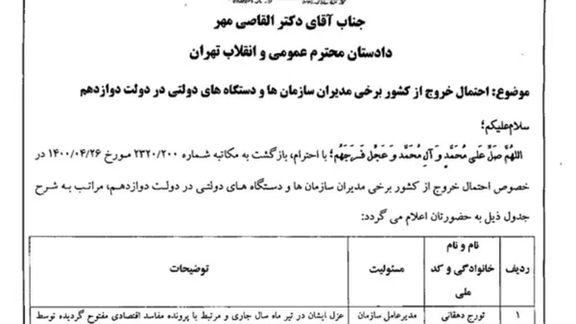
The IRGC forced the Rouhani administration to give up the government monopoly on oil exports during US sanctions, Ahmadinia said, explaining that they went as far as confiscating tankers belonging to the oil ministry under the pretext of seizing "smuggled oil" to get control of the profitable illicit oil sales.
"This is part of settling accounts with officials who resisted surrendering oil and oil products exports to the IRGC which they eventually had to do … This is revenge … Otherwise information on circumvention of sanctions is no longer secret," he said.
In recent weeks, Iran’s hardliner dominated parliament at least twice decided to give oil to the Guards to “sell” and use the money for their projects.
Sanctions evasion
Iran devised various methods to circumvent international sanctions, first imposed in 2011 by the UN Security Council, by recruiting businessmen, officials and IRGC networks to clandestinely market the crude, often at a much higher cost to Iran. Such methods resulted in several major corruption schemes and misappropriation of billions of dollars in oil and petrochemical sales that came to light after the UN sanctions were removed.
Such methods were employed again after former US President Donald Trump pulled out of the 2015 nuclear deal, Joint Comprehensive Plan of Action (JCPOA) in 2018 and re-imposed sanctions on Iran.
Oil exports dropped to around 200,000 barrels per day in 2019, but in late 2020, Tehran increased its sales through illicit channels. China is the biggest buyer, with shipments disguised as exports from other countries.
Hardliners sell more oil
The Raisi administration and its political allies say his government has a far better record than his predecessor, Hassan Rouhani, in economic performance, including circumventing US sanctions. In a speech in January Raisi said oil exports had increased by 40 percent after he took office, and that Tehran pursued a dual-track policy of circumventing US sanctions and working for their removal.
In the case of some of the officials named in the list, including officials of the Persian Gulf Petrochemical Industries, the IRGC intelligence organization demanded that they be prevented from leaving Iran for involvement in corruption and bribery. The Persian Gulf Petrochemical Industries is a public holding company active in investment and administering natural-gas processing plants, chemical factories, oil and polymer. It is the second-largest petrochemical industries holding in the Middle East.
Other reasons offered by the IRGC intelligence for demanding such a ban also included affiliation of an official's brother to the exiled opposition group Mujahedin-e Khalq (MEK) and his family's residence in Spain.
An official of the oil ministry has also been accused of "multi-layered connections with infiltration networks" and the National Iranian American Council (NIAC), a lobbying NGO based in the US.